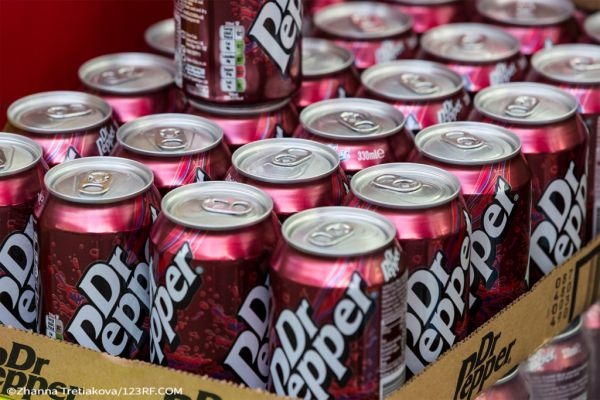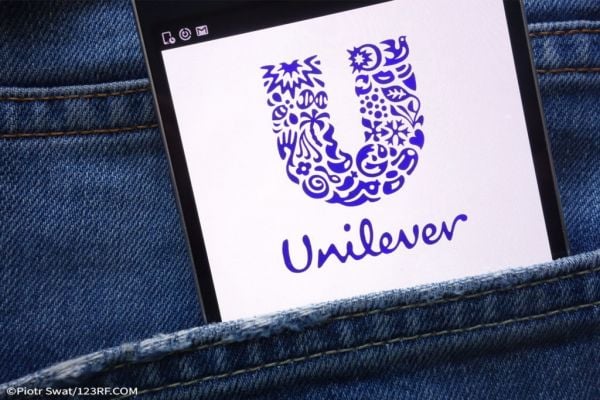Kantar research reveals that over three-quarters of UK grocery shoppers switch, avoid or boycott brands because of their environmental policies, with younger consumers more likely to switch or boycott brands. Maev Martin talks to Mark Chamberlain, managing director of Brand with Kantar UK, about what these findings mean for brands and retailers
Kantar questioned over 1,200 UK consumers between the ages of 16 and 65+ about their concern over a range of environmental issues, their purchasing decisions based on a brand’s sustainability credentials, environmental responsibility and whether, as a consumer, they had ever decided to boycott buying a product or switch to another brand based on its environmental reputation.
The Kantar research revealed that 77% of UK grocery shoppers have, in the last 12 months, switched, avoided or boycotted buying certain products, or would consider doing so in the future, based on brands’ environmental policies.
Brand loyalty is lowest among the youngest age group of 16-24 year-olds, with 87% saying they have switched or might do so, with more males (24%) switching or boycotting brands than females (18%).
Responses differ considerably among generations too, with 40% of millennials saying they have avoided buying, or decided to choose a different brand over the last 12 months, compared to only 9% of baby boomers.
However, almost half (46%) of this generation of 55-65+ year-olds indicated that, while they hadn’t switched or boycotted brands in the last year because of their environmental credentials, they might consider doing so in the future – the highest among all age groups.
Harsh working conditions, environmental pollution and the overuse of packaging are some of the issues that consumers think carefully about before purchasing FMCG products.
Interestingly, the research revealed that 76% of consumers believe that much needs to be done by the FMCG industry when it comes to publicising the positive work it is doing to address the environmental problems resulting from the throw-away, disposable culture we live in today.
This sentiment is high across all regions (>73%) with shoppers in the northwest of England (80%) agreeing followed by Greater London (78%). Only 9% considered this issue unimportant.
“This research, which focuses on the circular economy and how brands react to the sustainability agenda, is the latest in a series of studies where we try to understand attitudes to brands,” says Mark Chamberlain.
“Responsible living is being driven by cross-generational groups of ‘woke’ consumers that look towards inspiring brand heroes as change leaders.
Governments and organisations are being forced to listen and respond to consumers’ demands for greater transparency as businesses strive to become more purposeful.”
Re-building Trust
Almost 90% of respondents surveyed agreed that brands need to take more responsibility for the waste they produce and the impact it this has on our environment.
This sentiment was high across all age groups (>82%) but highest among those aged 65 and over (92%).
Three-quarters of shoppers agree that, due to inaction from many of the world’s governments, they want brands to act as forces for positive change in our society.
However, when questioned about their response, over 70% of all consumers agreed that efforts by businesses to protect the environment are ‘too little, too late’, with younger generations of millennials agreeing most with this statement (78%).
Over 70% of consumers agree that the response from businesses to the environmental damage being caused to our planet is ‘too little, too late’
“When you think about rising to the challenge, some businesses are doing it by establishing a strong purpose that permeates their entire organisation and others are taking a more CSR angle on it and are looking at taking smaller measures to respond to changing consumer demand,” says Chamberlain.
“Tesco is an example of a brand that has re-built trust by getting on the side of the consumer and really bringing to life its ‘Every Little Helps’ initiative.
Tesco is an example of a brand that has rebuilt trust and there are other brands that have made interesting pivots, such as the Lynx brand, which was synonymous with making men more irresistible to women, but Unilever has now made the brand about tackling toxic masculinity, so they are approaching masculinity in a different way.
Off course, trust on its own is not necessarily a guarantee of success alone – if you think of a well trusted brand like Thomas Cook it didn’t help them to sustain themselves in the market.”
Chamberlain says that part of the problem faced by FMCG brands is that quite often the measures that are taken are at a tactical level and consumers aren’t made aware of them.
“That is why the FMCG industry and the businesses in it should be looking at a more co-ordinated response, so that every action they take ladders up to a greater purpose.
Also, if the industry works together to address some specific issues, such as global warming, global deforestation, biodiversity and plastics, that could have a very positive impact on consumers’ perceptions. Levels of trust vary by category in the retail industry.
“Food more than personal care, for example, generates a bit more natural trust as a category but there are a wide range of variances within that,” he says.
Environmental Concerns
Consumers ranked global warming as their number one environmental concern (25%), followed by the overuse of plastic and other forms of packaging (18%), and then deforestation and the loss of biodiversity (14%).
They appeared less concerned about the depletion of the ozone layer (4%), extraction of fossil fuels from the earth and natural resource depletion (5%), overfishing of our seas (6%) and household/industrial waste (8%).
These and many other of today’s environmental issues are caused, in part, by a lack of responsibility taken by some of the world’s leading brands. That’s according to 83% of consumers and it is a sentiment that was expressed most among 25 to 34-year-olds (88%).
“The rise in responsibility and conscious consumerism is being influenced by a top-down approach as the consumer voice grows and pushes forward environmental and social agendas,” says Chamberlain.
“Consumers now expect the FMCG industry to be driven by some direction other than simply making a profit.
These values are fast becoming key assets in helping boost brand value whilst projecting a positive corporate image, and by doing so businesses can demonstrate a clear sense of purpose.
This is what consumers are now looking for in today’s brands, and this preference will only intensify as the next generation comes of age.
Purpose-led FMCG brands enjoy stronger growth and a deeper connection with consumers.”
He cites UK brand Divine Chocolate as an example of an FMCG brand that has earned greater trust from consumers due to its genuine commitment to becoming more transparent and its respect for the environment.
When it comes to UK grocery retailers, the research notes that Waitrose has committed to no plastic and glitter in its Christmas crackers in 2020, Tesco has stopped using plastic bags for home deliveries, and Morrisons now allows customers to use their own reusable containers at their meat, fish and cheese counters.
“The most-loved brands will be those that attempt to achieve a zero-carbon footprint by re-thinking operations and finding solutions that are fully sustainable both for the environment and the business bottom line,” says Chamberlain.
Other key trends
Plastic Problem
Over half (53%) of consumers rank the overuse of plastic and other types of packaging as one of their top three environmental concerns.
More women than men are concerned about it (58% v 49%), with 45 to 64 year-olds expressing most concern across all age groups (60%).
Buying Decisions
82% of 25 to 34 year-olds say they sometimes or always check a brand’s commitment towards sustainability, the environment and saving the planet before making a purchase.
Taking Responsibility
Almost 90% of consumers agree that brands need to take more responsibility for the waste their products create and the impact it has on the environment, with 50% ‘strongly agreeing’.
This sentiment is strong across all age groups (>82%) and is highest among the 65+ cohort (92%).
Younger Generations
Those most concerned with the issue of global warming are 16 to 24 year-olds, the youngest age group overall, with 65% ranking it as one of their top three concerns. Of those, over one-third said it was their number one concern.
Boycotting Brands
76% of consumers said they had boycotted buying certain clothes, had switched brands in the last 12 months, or were thinking of doing so because of a brand’s environmental policies.
© 2020 Checkout – your source for the latest Irish retail news. Article by Maev Martin. Click subscribe to sign up for the Checkout print edition.








